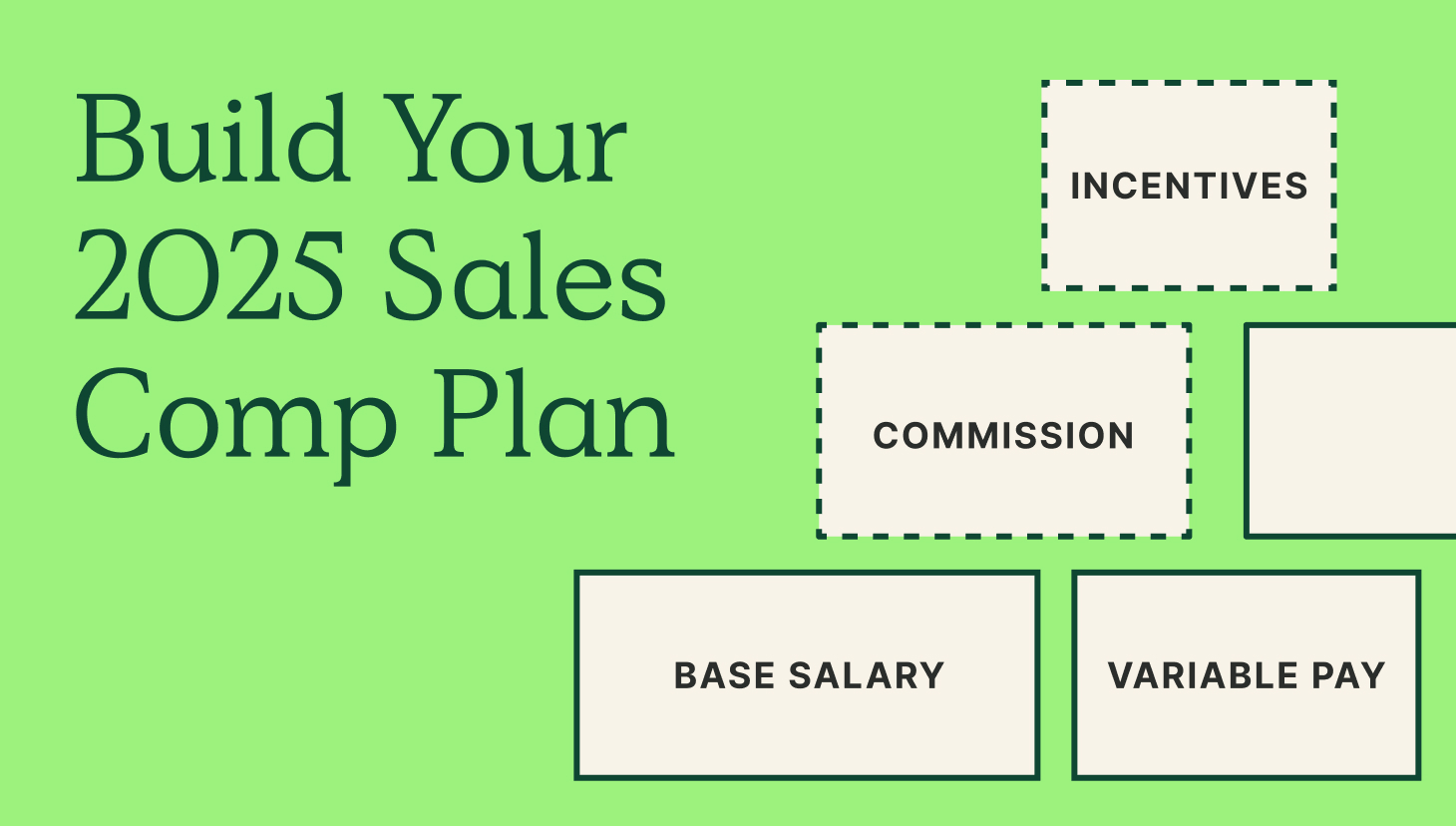Attracting and retaining top sales talent in a competitive market is challenging, especially in the rapidly evolving SaaS market. To win the attention of the best candidates, you offer them flexibility, great pay and benefits, growth and advancement opportunities, and an appealing company culture.
Finding the ideal candidate for a SaaS sales position is another matter.
The best candidates thrive in a fast-paced, innovative, and rapidly evolving environment while finding satisfaction in contributing to the company’s growth. Adding a highly complex enterprise comp plan to the mix increases the hiring challenge, potentially hindering understanding and trust.
Compensation benchmarking is crucial for large sales teams to make informed incentive decisions.
It ensures the development of fair and logical incentive packages that remain competitive. This enables businesses to attract and retain top talent and accurately budget for all compensation plan components without any unpleasant financial surprises.
Compensation Benchmarking Tools
- Pavilion B2B 2024 Compensation Benchmarks: This interactive report from Pavilion includes benchmarks based on compensation data from over 2,000+ B2B technology professionals collected throughout 2024.
- Betts Compensation Guide 2024: This guide reveals how sales, marketing, and customer success average earnings changed over the past year. It also includes top trends affecting both salary rates and benefits packages, as well as which roles saw the most upheaval.
- Betts Executive Compensation Guide 2024: This revamped guide offers comprehensive guidance and insights tailored to roles like C-suite, VPs, Directors, Board Members, and Fractional Executives. The guide covers topics including 2024 trends, compensation negotiation, and compensation breakdown.
What is Compensation Benchmarking?
Compensation benchmarking is the process of gathering, analyzing, and leveraging data that defines the costs associated with salaries and other compensation plan elements.
Sales compensation benchmarking insights enable organizations to remain competitive as industries and markets evolve to attract and retain top talent. Sales compensation components to benchmark include elements like base salary, commission rates, bonuses, and benefits.
How to do Compensation Benchmarking
Follow these four steps to effectively benchmark compensation and create a competitive incentive package.
Step 1: Identify Your Benchmark Group
Define your ideal sales rep profile including tenure, skill set, and industry.
For instance, reps with more experience may qualify for a higher salary and a richer incentive package than less experienced team salespeople.
Additional factors to consider include company size, geographic location, sales methodology, and sales cycle length. Benchmark against similar businesses for the best results or adjust the data according to things like geographic differences such as cost of living.
Step 2: Gather Data
Utilize reliable compensation benchmarking tools such as:
- Pavilion’s 2024 B2B Compensation Benchmarks report
- Betts 2024 Compensation Guide
- Betts 2024 Executive Compensation Guide
Consider conducting surveys of similar companies in your industry or leverage job boards and salary comparison websites such as Indeed and ZipRecruiter. When referring to job boards and websites, always consider how well-aligned the company and role are with the factors you are benchmarking. Otherwise, you risk skewing your data and negatively impacting your results.
Step 3: Analyze the Data
Review the data you’ve assembled. Examine factors beyond base salary, such as commission structures, bonus potential, and benefits packages. These are important elements for attracting and retaining top talent.
Look for trends and median figures within your defined benchmark group. These are key factors to prioritize as you progress to the next step of creating your compensation package.
Step 4: Develop a Competitive Compensation Package
Use your analysis to design a compensation package attractive to top sales talent while remaining financially responsible. Test the new plan against historical data to ensure it doesn’t break the budget.
Consider offering a mix of base salary, commission, and bonuses to incentivize performance that drives organizational goal achievement.
Streamline commissions for your RevOps, Finance, and Sales teams
Design, track, and manage variable incentives with QuotaPath. Give your RevOps, finance, and sales teams transparency into sales compensation.
Talk to Sales5 Compensation Benchmarking Practices Specific to Large Sales Teams
Large sales teams should complete additional steps during the benchmarking process. These best practices will further enhance your results.
- Account for Team Dynamics and Specialization: In large sales teams, roles can become specialized. Benchmarking should consider specializations such as SDR, BDR, and Account Executive and their unique contribution to the sales cycle. Analyze data for specific roles within your team structure to ensure competitive compensation for each level.
- Factor in Performance Variability within a Large Team: Large teams naturally experience a wider range of individual performance. Consider segmenting your analysis within the benchmark group to account for top performers, average performers, and those requiring improvement. This allows you to design a compensation structure that rewards high achievers while providing a baseline for development within the team.
- Analyze Quota Attainment Rates Across Similar Teams: Quota attainment is a key performance metric in sales. Benchmarking should not just focus on compensation but also on quota attainment rates within the benchmark group, specifically for teams with similar sizes and structures. This allows you to assess the achievability of your quotas and ensure your compensation plan incentivizes reaching those goals.
- Leverage Internal Data for Segmentation and Targeting: Large teams often generate a wealth of internal sales data. Utilize this data to segment your team based on performance metrics like revenue generated, deals closed, and meetings scheduled. This allows for targeted compensation adjustments within your team, addressing performance gaps and motivating improvement.
- Consider Retention Rates and Competitive Counteroffers: Employee turnover can be disruptive for large teams. Analyze data on retention rates within your benchmark group, particularly for top performers. Understanding counteroffer trends in the market can also be valuable. Use this information to develop competitive compensation packages that incentivize your top talent to stay.
Additional Considerations for Large Sales Teams
These additional compensation best practices will help you remain competitive and continue attracting and retaining the best talent in the marketplace.
- Ensure compensation packages are internally aligned based on experience, performance, and territory.
- Clearly communicate compensation structures and how performance translates to rewards.
- Regularly review compensation benchmarking data and adjust salary ranges and structures as needed.
Try QuotaPath for free
Try the most collaborative solution to manage, track and payout variable compensation. Calculate commissions and pay your team accurately, and on time.
Start TrialCompensation Benchmarking For Large Sales Teams
Compensation benchmarking is important for businesses with large sales teams. It facilitates informed, financially prudent incentive package decisions.
Pay benchmarking helps ensure industry and market competitive incentives that attract and retain top talent. This comparative process ensures internal fairness in comp plans across an organization and ultimately drives sales performance to achieve organizational goals.
Offering competitive compensation packages helps attract top talent. These incentives also boost team morale, create a high-performance culture, and increase sales productivity.
Start benchmarking your compensation package by leveraging the above tools and adapting the outlined steps to your specific needs.
To learn more about the compensation resources QuotaPath offers, schedule time with a team member.



